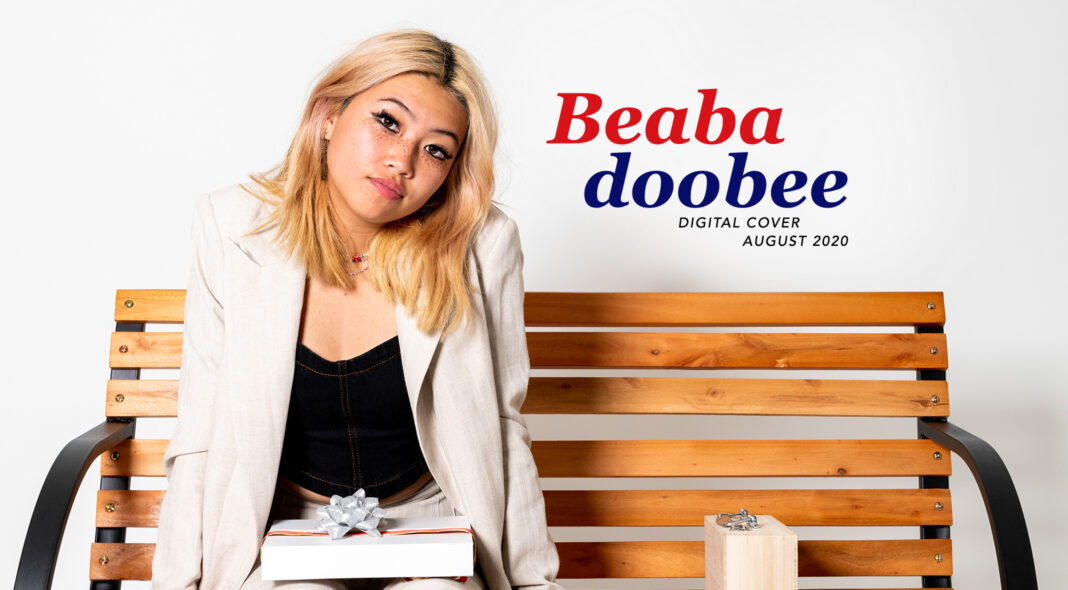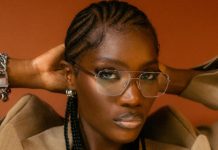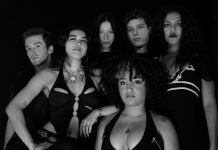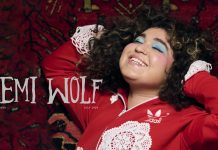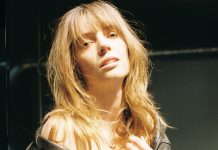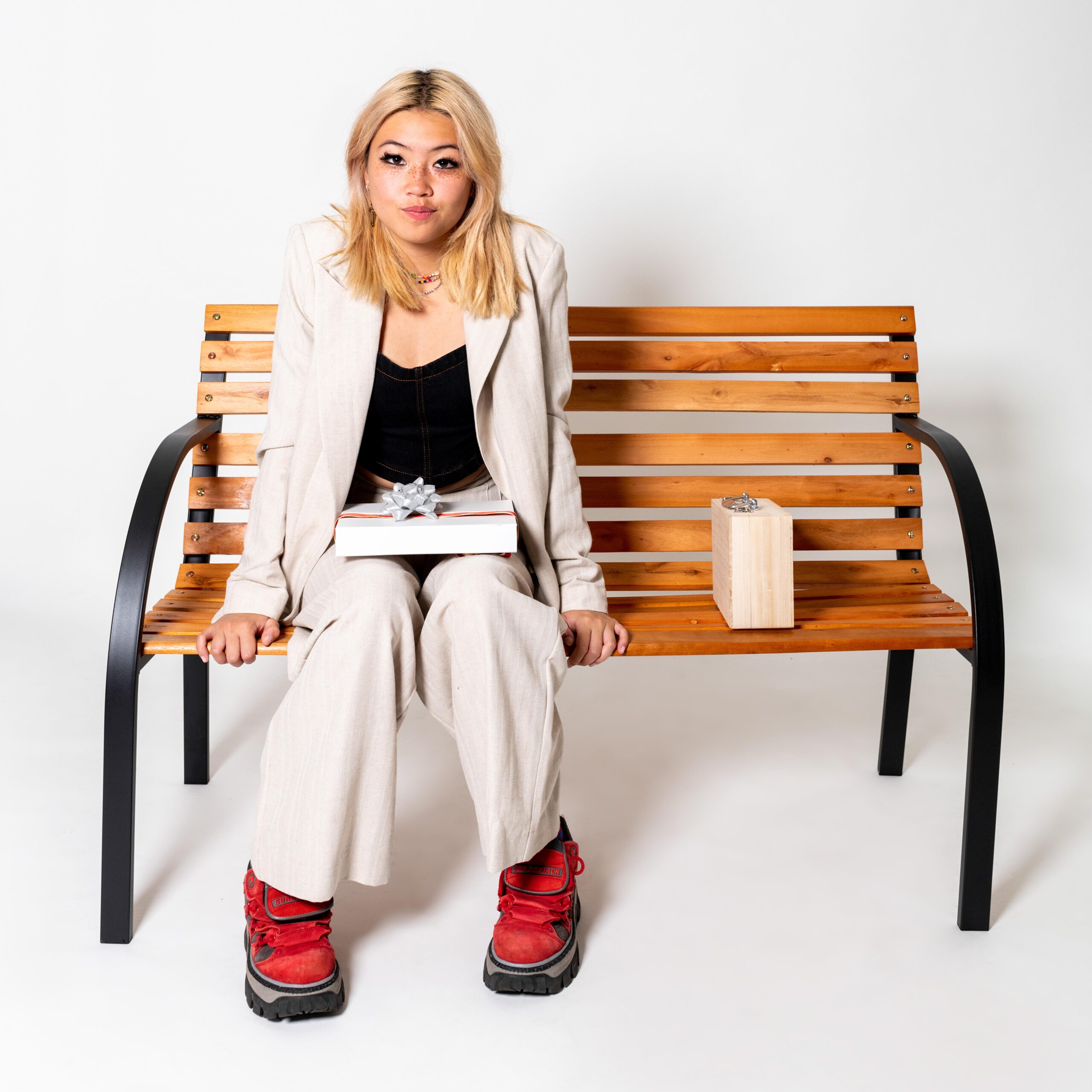
B E A B A D O O B E E
As she prepares to release her debut album, Beabadoobee is determined to be an inspirational force but in making her own coming-of-age soundtrack, she’s had to dig deep into life’s box of chocolates…
Words: Jenessa Williams. Photos: Sarah Louise Bennett. Creative Direction: Emily Barker
Bea Kristi is sat wide-legged on a park bench, channelling her own sassy interpretation of Forrest Gump. “I’m just going to be a businesswoman from now on”, she beams, clearly enjoying the feel of the sharp beige suit that she has instantly made her own. Tom Hanks, as we all know, is her lifelong hero, and as she moves through the various poses of his classic movies, she enthuses about her increasingly hair-brained schemes to get his attention. “I’ve DM-ed his wife – she makes music so I was like ‘do you wanna collab?’ She didn’t reply, but I still literally DM him every day to ask how his day went.”
Mrs Hanks may not be on board for a co-sign, but Kristi doesn’t really need the help. As Beabadoobee, she has quickly racked up a legion of followers ready to hang upon her every word and recommendation – most of them 90s inspired. On the day of our shoot, she arrives in an outfit straight out of a Cameron Crowe classic, her centre-parted bleach-blonde hair putting a young Drew Barrymore to shame. After a brief childhood stint as a One Direction Stan (Zayn bias), the works of Elliott Smith and Daniel Johnston opened up a portal of retro discovery from which she’s never looked back.
By blending the sonics of her tragic heroes with a distinct pop sensibility, she’s managed to pull off what many artists twice her age have been incapable of – a sound that feels at once nostalgic and forward-thinking, gently morphing from experimental two-chord ballads to all-out guitar-heroics in just under three years. Somewhere along the line, the pupil has become the master.
“People are like ‘Beabadoobee is the voice of a generation!”, she laughs, putting on a clipped newsreader voice. “I don’t know about that, but it’s super flattering, even if it’s in a bit of an ‘oh shit’ way. I don’t see my age as being something super important, but if my music does relate to people my age I guess I’m doing my job correctly.”
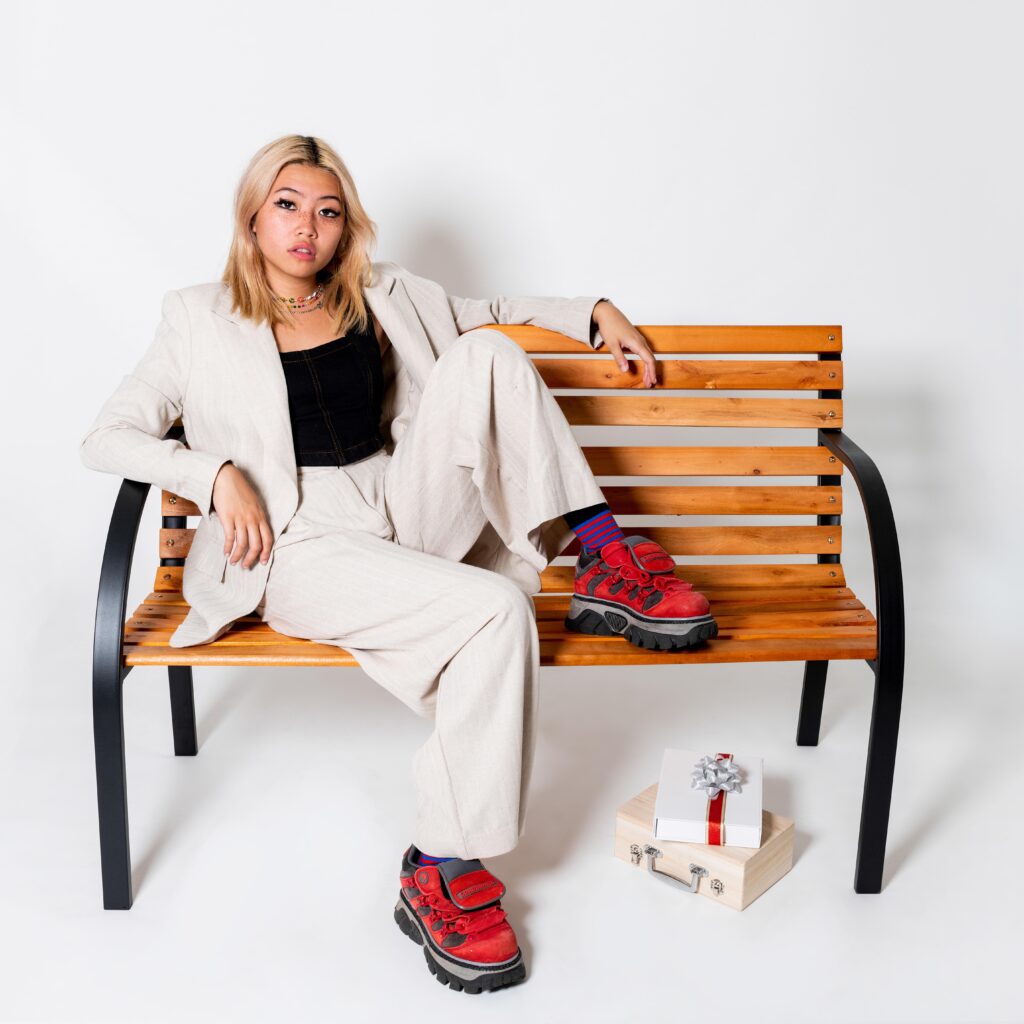
Bea makes no bones about wanting to be an influential force – not a lofty entertainer that people cower at the feet of, but someone who girls can see themselves in. Introduced to female-fronted rock by her mother, Bea found particular comfort in the entertainment of yesteryear, a time before women were subject to the constant scrutiny and comparison of social media. “My Mum used to play Suzanne Vega and Alanis Morissette all the time, and I guess subconsciously you get inspired by that,” she says. “There is just something about 90s culture that is super cool and interesting – ‘But I’m A Cheerleader’ and ‘The Craft’ have the most amazing soundtracks. With ‘…Cheerleader’, every song on the soundtrack is a female singer in a band – that is just SO badass.”
THERE IS JUST SOMETHING ABOUT 90S CULTURE THAT IS SUPER COOL AND INTERESTING
BEABADOOBEE
Discovering the work of Kimya Dawson was also something of an awakening. “The first record that genuinely had me was ‘Remember That I Love You’. Her lyrics are just so genuine and funny, and sometimes quite childlike – it’s naive but in the best way possible. I really want to show that within my music.”
At the risk of psychologising, her desire to cocoon herself in the familiar sonics of young childhood feels logical when you consider Bea’s rocky adolescence. Raised in West London, school was far from ideal, and she hints at other struggles too, a ‘dark period’ that seems to link back to a feeling of placelessness, her Filipino heritage rendering her as something of an outsider in a classroom full of insecure teens looking for an easy target. Soon, she had fallen in with the ‘stoner crowd’, and just before starting her A-Levels, her teachers called time on her erratic attendance and attitude – she was asked to find a new school. Not the easiest conversation to have with your parents…
“Well, honestly, at first, I feel like any parent would be like, “er, what the fuck?” she remembers. “I wasn’t taking education seriously. I only got into music quite late in my life, and when my dad bought me a guitar at 17, it meant a lot that he understood that I needed something to distract myself from being so sad. He and my mum saw how hard it was growing up in a predominantly white, all-girls Catholic school – you know those backhanded compliments and snidey little remarks? Girls can be amazing, but for some reason, secondary school is just a shithole.”
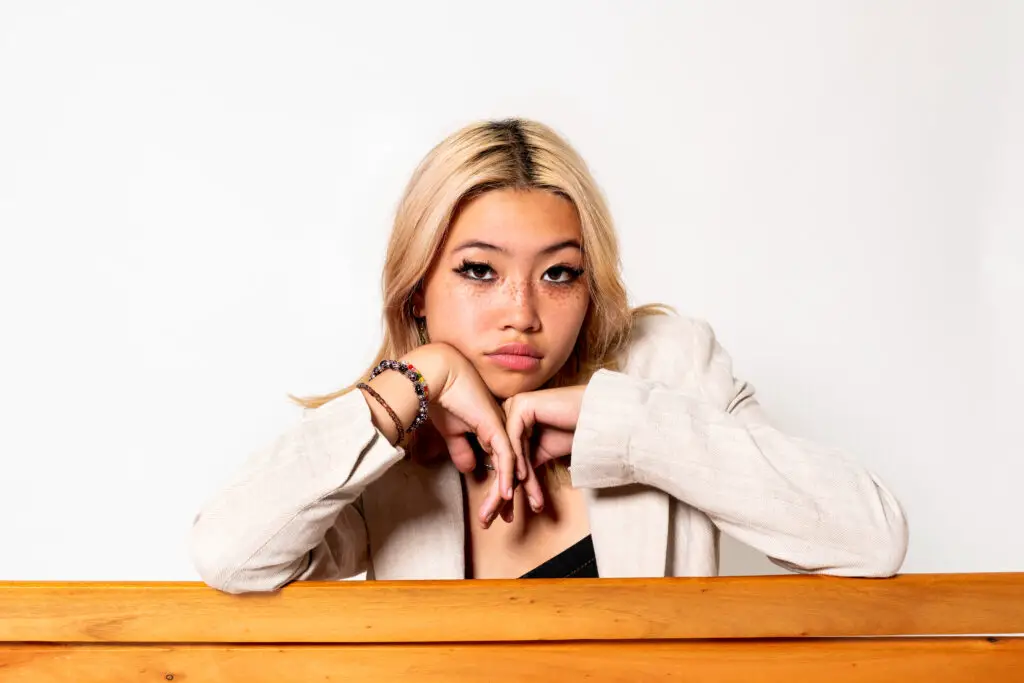
Music didn’t cure Bea’s depression overnight, but it definitely helped. With a new outlet to express herself, things started moving fast. Uploading the first song she ever wrote – ‘Coffee’ – to YouTube, she swiftly racked up 30,000 hits, and a genuine escape from the drudgery of formal education proffered itself in the form of a Dirty Hit record contract. It was an opportunity that even her parents knew she couldn’t pass up.
“I remember when I first got really into making music and ended up telling Dad that I didn’t think I wanted to go to University, and he was like “WHAAAAT”, she laughs. “But now he’s the most supportive person ever, as well as my mum. To be honest, I feel like my mom lives vicariously through me because she’s always wanted to play guitar, it’s super cute.”
With the mean girls of high school firmly behind her, being kicked out of education hasn’t turned out so badly for Bea, but it might not be the route that many parents would want her to advocate for. Does she worry about being a good role model?
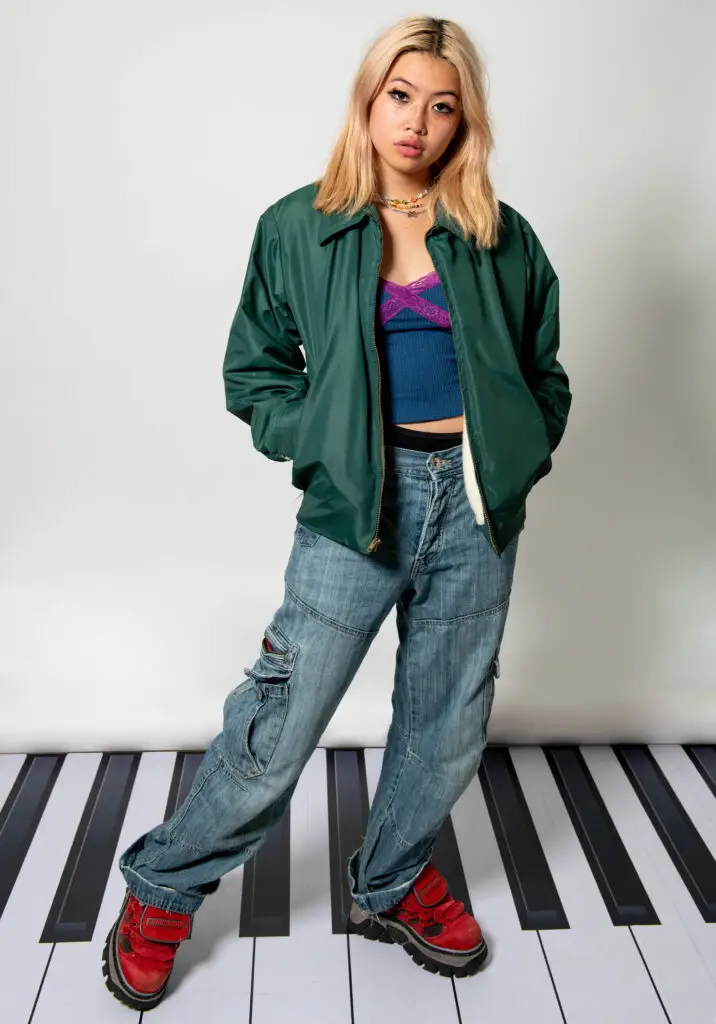
“I just want to give a message that girls should be confident in who they are, and do whatever they want.” She reasons. “That doesn’t mean I’m saying “stay in school and be a good girl”, but I’m also not saying “go outside and do loads of fuckin’ drugs”. Do what you think is right, but do whatever you’re doing for yourself. All of the people that I looked up to didn’t look anything like me, and I felt really confused and alienated and shit. So I hope to think that I can inspire girls in some way, even if it’s like the tiniest amount, to just get out there and be passionate about something. And if they can find something that helps them come out of their shells and organise their brain a little…it can be a bit like therapy. Music really does help. If you feel shit, write it down.”
If you feel shit, write it down – an adage that has kept the music industry alive for centuries but not all artists have had to grow up in public in quite the same way as Bea. A total digital native, her earliest experimentations with songwriting were shared on the Internet without a second thought, elevated to scrutiny now her star has ascended. She doesn’t regret the trial and error of finding her sound in public, but given the chance for a Y2k reverse re-do of her beloved movie Big, there are definite personal changes she would have made.
“I used to use social media as just this spam thing – every time I went out it’d be like yeah, let’s make stupid videos,” she says. “But it’s not necessarily the place for that anymore. Social media can be amazing to find music or make friends, but it’s also a pit of fucking hatred and jealousy and people trying to be like other people. It’s fucking terrifying, and it’s only gotten worse. I never planned for any of this attention – I mean, I called myself Beabadoobee! Do you think I thought this was going to happen?! That just shows how much I did not prepare myself for this life.”
I NEVER PLANNED FOR THIS ATTENTION. I MEAN, I CALLED MYSELF BEABADOOBEE! DO YOU THINK I THOUGHT THIS WAS GOING TO HAPPEN?
BEABADOOBEE
What’s the worst it’s been for you? Have you had much first-hand experience of hideous messages, or of people trying to ‘cancel’ you?
“Oh yeah”, she says, polite enough to not verbally add the ‘well duh’ that her intonation implies. “I literally had to have my boyfriend block Twitter on my phone because it made me too depressed. I have a therapist, and I speak to him weekly about childhood stuff, but we touch on the online abuse I get at times too. I don’t think anyone is made for that sort of shit – it’s hard to get used to. People don’t really see musicians as human beings, but they’re probably just going through their own shit that they’re projecting. That’s what my therapist is always saying anyway.”
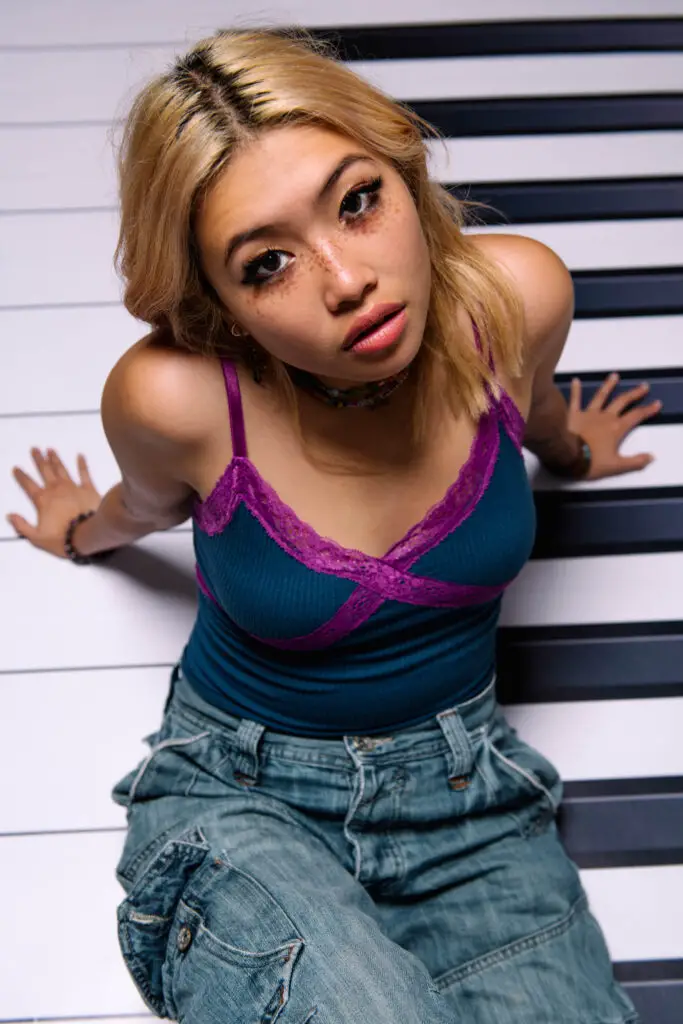
Some of this new attention comes as a result of Bea’s rapidly swelling TikTok audience. In February of this year, Canadian musician Powfu sampled her song ‘Coffee’ on his track ‘Death Bed’ – the woozy rap-pop re-imagination promptly went viral, introducing a whole new influx of followers to her work.
“‘Death Bed’ properly captured the popular sound right now, so it’s definitely changed my audience in size,” she says. “I missed the TikTok phase by a few months, but it’s crazy how my song is just there on it loads. It’s gained a lot of attention from people who don’t necessarily listen to what I normally make – they get a notification for ‘Care’ after listening to ‘Death Bed’ and they’re like “what the fuck is this?!” But I’m so happy that people can discover mine and Powfu’s music, and you know, someone who listens to ‘deathbed’ might not think they want to listen to ‘Care’, but it might run on and they go actually, this is all right.”
Any extra fanbase may well have turned up just in time. With the announcement of her debut album ‘Fake It Flowers’, a new era of beabadoobee is upon us, and ‘Care’ is a fittingly angsty introduction, drawing together her now customary themes of honest disclosure and real-time emotional processing. “It’s the sound I’ve always wanted to make – just some chick in the end-of-movie-credit-scene that is super cringe but just like… ah huh-uh yeah,” she demonstrates, adopting a spot-on ‘Crossroads’-Britney vocal harmony. “I’ve always wanted to do one of those, so I’m pretty proud of that.”
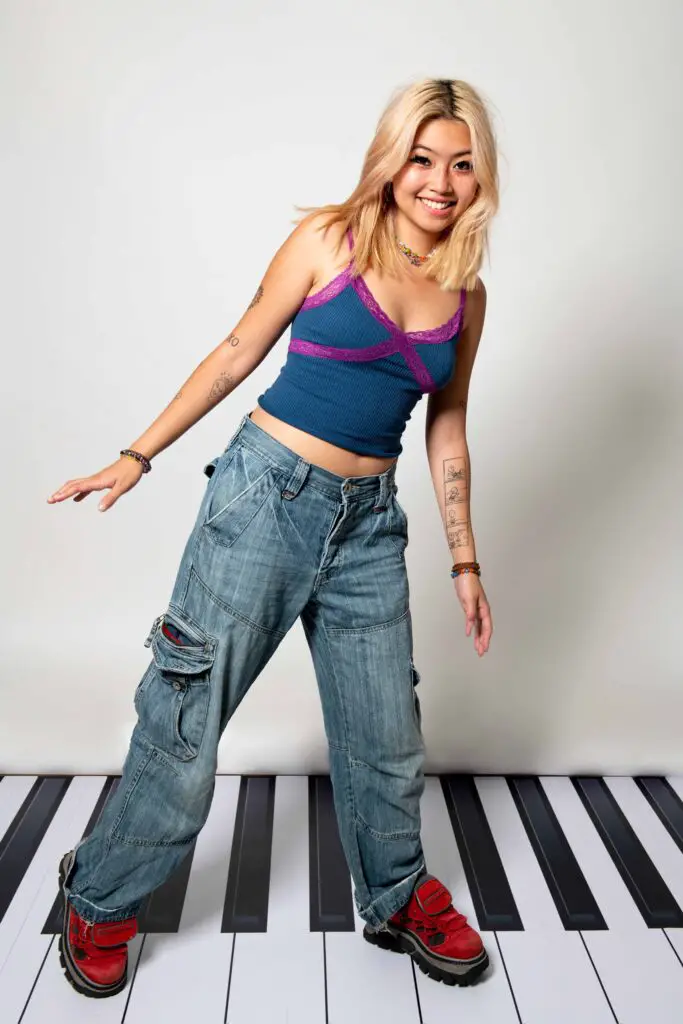
Another song, ‘Charlie Brown’, is currently a favourite of Bea’s. “I did proper screamo for that and wrecked my throat. The song itself is super, super depressing – everyone was like “oh, what’s it about?” and I’m like “you don’t want to know!” I’m mostly just proud of my band and my producer, because fucking hell, they made this exactly as it sounded in my head. Every time I give them a song, they’re like, “yep, I know what to do”, which is the most satisfying, amazing feeling.”
Building a network of supportive friends and colleagues has been instrumental to Bea’s success, both personally and professionally. Her band, recruited through various friend-of-a-friend recommendations, have become the confidantes she never had, instantly understanding the direction of her work. “I knew immediately that they’d be perfect – they dressed perfectly, they look like we’d be best friends and we are,” she beams. Her long-term partner Soren has also recently come into her professional fold, directing the videos for both ‘Care’ and ‘Sorry’ from quarantine. “It’s been really fun – with ‘Care’, we were pretty much stoned the whole time and filmed from 12 pm to 2 am. There’s a lot of songs that are about touchy subjects, and it could get a bit messy, but we’re both at a mature place to separate music and our relationship and work.”
I KNEW IMMEDIATELY THAT MY BAND WOULD BE PERFECT – THEY DRESSED PERFECTLY, THEY LOOK LIKE WE’D BE BEST FRIENDS AND WE ARE.
BEABADOOBEE
Signing a record deal at 17 could have induced its own regrets, but she remains happy on Dirty Hit, finding it difficult to imagine herself anywhere else. Her comfort is emphasised by the location from which she talks – a residence out in the Oxfordshire sticks, where she’s currently working on an unspecified recording project with The 1975, to be released at some point after she’s had time to “properly live in the ‘Fake It Flowers’ universe.”
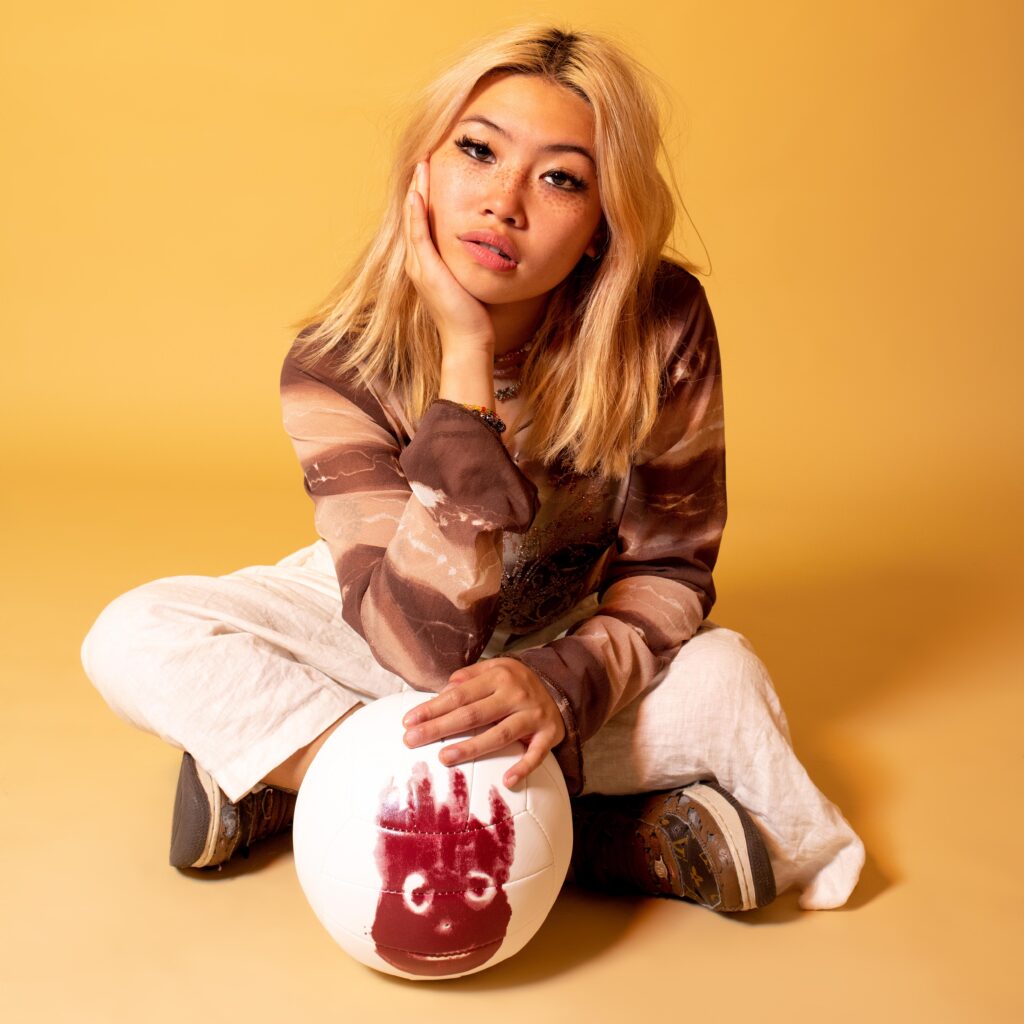
“It’s going really good, although I’m struggling a bit with finishing lyrics – I’m going through this weird writing drought, probably because y’know, I just finished a whole-ass album! You burn out, but I’m here trying my best. It’s a much more open forum of ideas – Matty’s been helping me with lyrics. ‘Fake It Flowers’ is very much me doing songs I wrote in my bedroom, but this project is a real mix. I’ve let myself become so open, and it gives off a much more mature sound.”
Despite having already developed somewhat past it, ‘Fake It Flowers’ demonstrates a distinctly more ambitious and identifiable sound than anything Bea has released before. It’s not always an easy listen – some of the lyrical themes are so intimately personal that she says she’s unlikely to ever play certain songs live. Striking the balance between musical disclosure and self-preservation is an eternal battle, but she sees this record as an opportunity to embrace a new chapter, challenging herself to reflect upon everything that’s brought her to this point. Her intent is set not only in the music, but in her image – like each era before it, her newly blonde hair is an emblem of change – her very own version of a movie makeover montage.
“It’s a lot to do with me growing and maturing from touring,” she says. “I know I haven’t been on many, but I toured the US, and I did a headline UK tour with Dirty Hit, and, um, shit happened. I’ve made loads of mistakes; I’ve met a lot of people that weren’t so good to me. ‘Sorry’ is something that is so personal – admitting and confessing to my mistakes is one big thing I never usually do. Lyrically, there’s just so much more to reflect on, and with the sound, I guess, naturally after playing arenas with The 1975, I wanted to make songs that would fill those rooms. I wanted to sound powerful.”
AFTER PLAYING ARENAS WITH THE 1975, I WANTED TO MAKE SONGS THAT WOULD FILL THOSE ROOMS. I WANTED TO SOUND POWERFUL
BEABADOOBEE
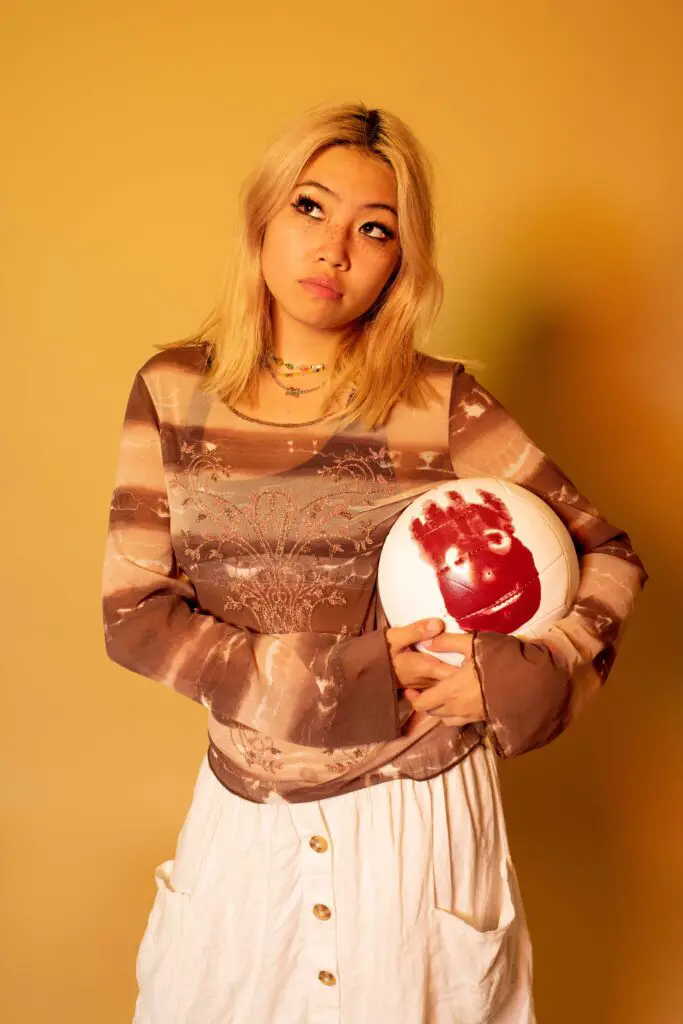
Always keen to bring things back to the 90s, she recalls her earlier point about Kimya Dawson, wanting to be the kind of musician who grows and develops without apologising for the process.
“When I wrote the ‘Space Cadet’ EP with my blue hair, I was so sure that I knew exactly who I was – typical 19-year-old girl!” she scoffs. “Obviously I’m not saying “oh, I’m sooooo wise now”, but I have grown a tiny bit. The shit I’ve experienced – it’s been a lot.
“I wanted this record to be big and confident but also very soft and gentle and naive and scared. I guess half the reason why I make music is for people to relate to it – I remember when I found Miki from Lush, this Asian chick with bright red hair, British and super badass. I so wished I could have known about her earlier in my life. If I could be that for at least one girl, that would be so cool.” From her own unabashed fandoms to the exponential growth of that follower count, one suspects that Bea will be exactly ‘that’ for more girls than she could ever have imagined.
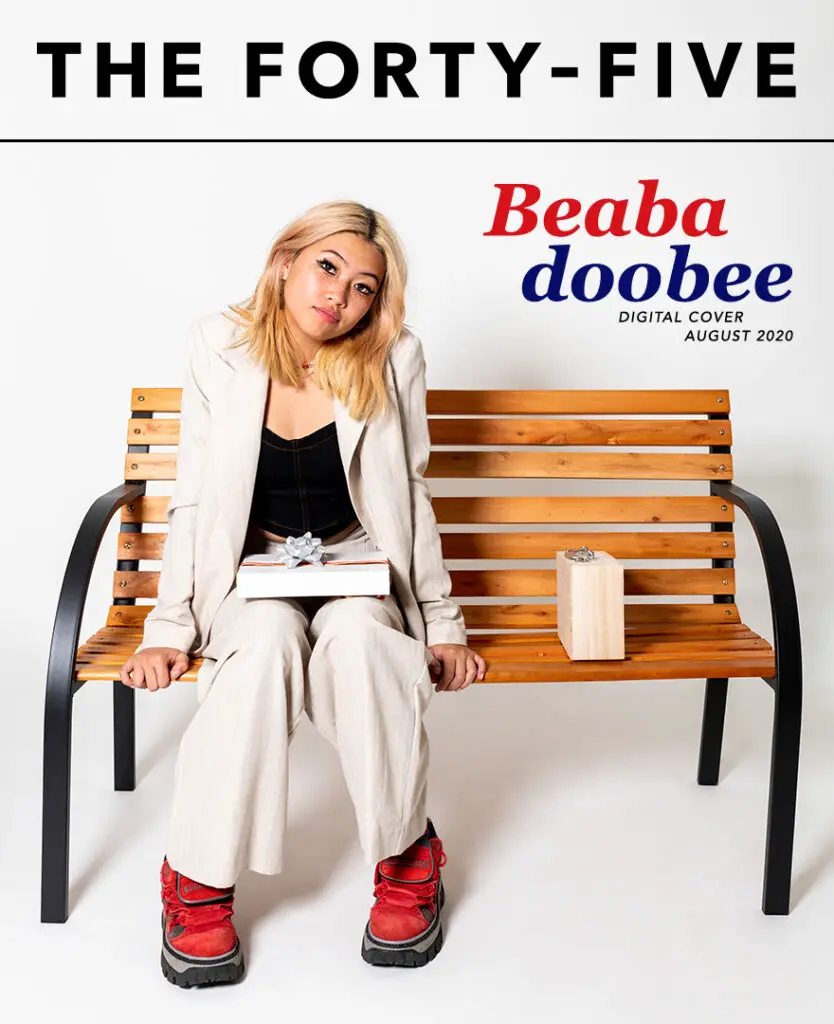
‘Fake It Flowers’ is out 16 October 2020 via Dirty Hit.
Thanks to The Vintage Showroom for wardrobe support.


